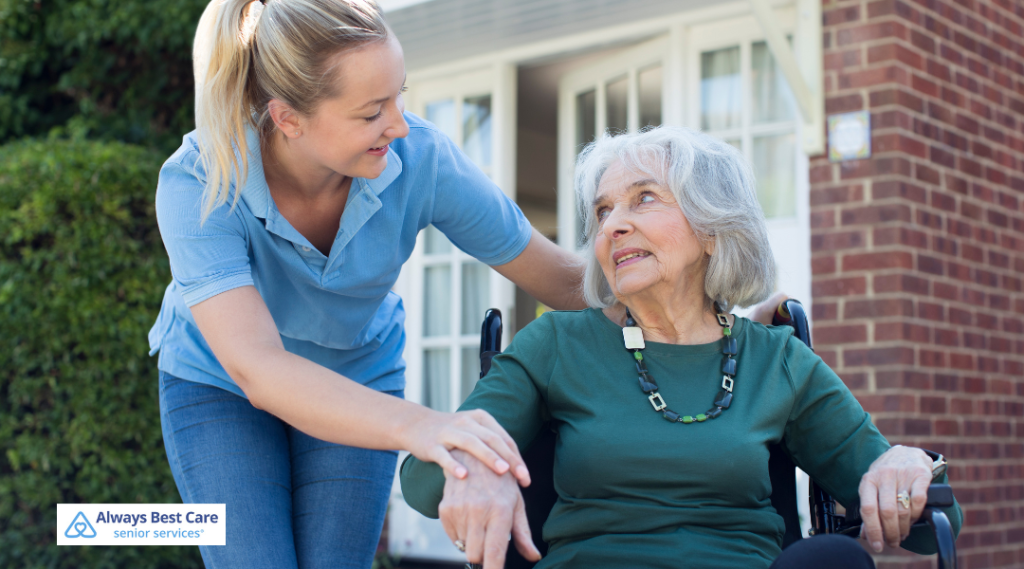10 Frequently Asked Questions about Hospital-to-Home Services

Leaving the hospital is a relief, but the transition home can feel daunting. Whether recovering from surgery, an illness, or an injury, many people need more than a quick discharge to ensure a full recovery. Hospital-to-home services provide professional, tailored support to make this next step safe, comfortable, and less stressful for both patients and families.
These services focus on helping patients regain independence while receiving the medical and personal care needed to heal. Below, we answer common questions to help you understand how hospital-to-home programs work and how they make the recovery journey easier.

Table of Contents
What is Hospital-to-Home Dementia Care?
Hospital-to-home services bridge the gap between inpatient care and everyday life at home. They provide skilled assistance—from medication management and personal care to therapy and home safety checks—so patients can continue healing where they feel most comfortable. The goal is to lower the risk of complications, reduce hospital readmissions, and promote a quicker, smoother recovery.
The goal is to help seniors with dementia feel comfortable and secure as they transition from hospital care back to their home, where loved ones and familiar surroundings can surround them.
How Do Hospital-to-Home Services Work?
Once a patient’s doctor approves discharge, a care team develops a personalized plan based on medical instructions and home needs. Services may include:
- Medication reminders and management
- Assistance with bathing, dressing, and meals
- Physical or occupational therapy coordination
- Mobility and fall-prevention support
- Health monitoring and regular progress updates
Care providers work closely with family members and healthcare professionals to ensure every step of recovery is supported.

Who Qualifies for Hospital-to-Home Care?
These services are ideal for anyone recently discharged from the hospital who needs short-term support. Common situations include:
- Recovery after surgery or a medical procedure
- Healing from an illness, injury, or accident
- Managing new medications or mobility changes
A hospital discharge planner or physician usually helps determine if hospital-to-home care is appropriate.
What Support Is Typically Provided?
Hospital-to-home programs can cover everything from medical oversight to daily comfort. Typical services include:
- Medication Management – Timely reminders and tracking to avoid missed doses or interactions.
- Personal Care Assistance – Help with hygiene, dressing, and meals to support dignity and health.
- Therapy Coordination – Scheduling and assisting with physical, occupational, or speech therapy.
- Safety and Mobility Help – Guidance and hands-on support to prevent falls and injuries.
- Emotional and Social Support – Friendly conversation and companionship to lift spirits during recovery.

10 Frequently Asked Questions About Hospital-to-Home Services
Q: What exactly do hospital-to-home services include?
A: They provide professional support—medical, personal, and emotional—to help patients recover safely at home.
Q: How soon can care begin after discharge?
A: Usually right away. Once a discharge plan is complete, services can start the same day or within 24 hours.
Q: Who typically arranges hospital-to-home care?
A: Hospital discharge planners, doctors, or families can coordinate with a home care agency to set up services.
Q: How is a care plan personalized?
A: Care teams assess medical instructions, home environment, and personal preferences to create a tailored plan.
Q: How long do services usually last?
A: It varies—some patients need just a few days of support, while others may require weeks until fully independent.
Q: Are hospital-to-home services covered by insurance?
A: Coverage differs. Medicare, Medicaid, and private insurance may pay for certain services. Check your policy for details.
Q: Can care be adjusted if needs change?
A: Yes. Care plans can be updated anytime if the patient’s condition or recovery timeline changes.
Q: How do these services reduce the risk of readmission?
A: By managing medications, monitoring health, and preventing falls, they help avoid complications that might lead back to the hospital.
Q: What should families prepare at home before discharge?
A: Clear walkways, arrange needed equipment, and review the care plan with the provider to ensure a safe return.
Q: How do families stay informed about progress?
A: Care teams provide regular updates and coordinate with doctors to keep everyone on the same page.
If you or a loved one is navigating the transition from hospital to home with dementia, hospital-to-home dementia care could be the perfect solution to ensure a safe, smooth, and successful recovery.

Peace of Mind for a Healthier Recovery
Hospital-to-home services make the transition from hospital to home smoother, safer, and less stressful. By providing professional care tailored to each patient’s needs, these programs help reduce complications and give families confidence during recovery.
Contact Always Best Care of Argyle at (940) 241-2273 to learn more and schedule your free consultation.





